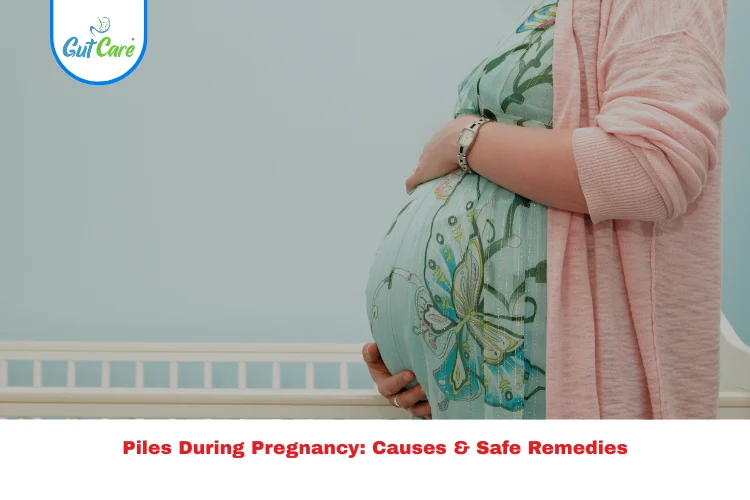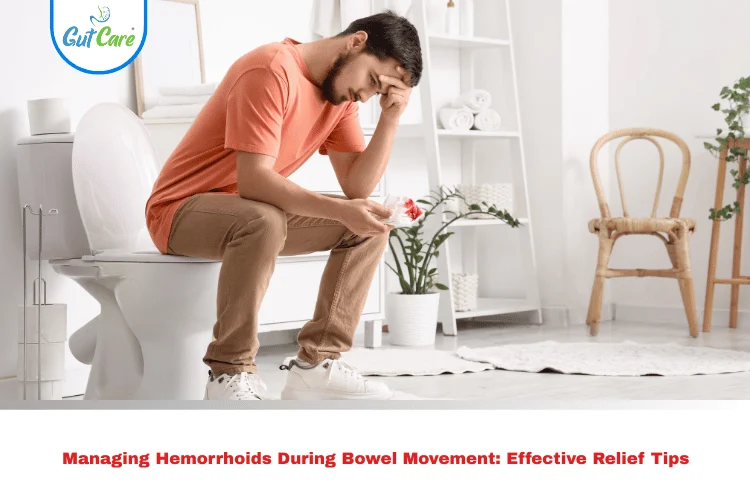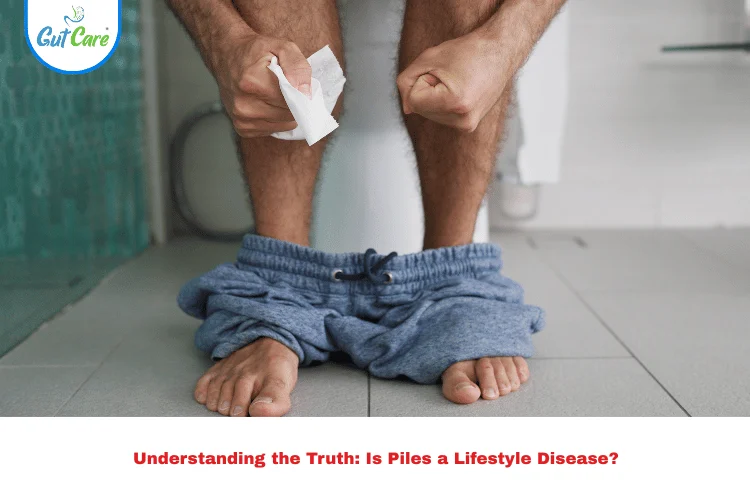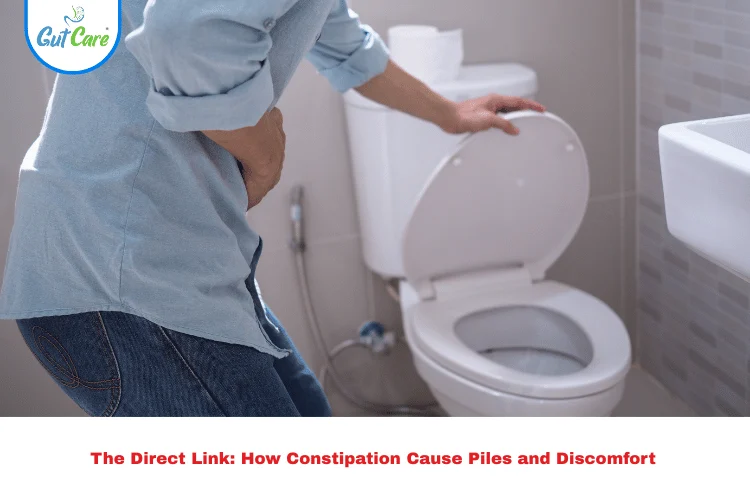Piles during pregnancy is a common yet uncomfortable issue that many expecting mothers face. At Gutcare Clinics in Bangalore, we understand how distressing this condition can be and offer expert care and advice to help manage it effectively. In this blog, we’ll explore the causes of piles in pregnancy, the most common pregnancy piles symptoms, safe piles treatment during pregnancy, and how to find relief from hemorrhoids in pregnancy. If you’re struggling with rectal pain during pregnancy or wondering how to treat hemorrhoids during pregnancy, read on for clear, trusted guidance.
What Are Piles (Hemorrhoids)?
Piles, also known as hemorrhoids, are swollen veins in the rectum or anus. They can be internal or external, and they often cause itching, pain, discomfort, and sometimes bleeding.
When piles occur during pregnancy, they are often the result of increased pressure on the pelvic region due to the growing uterus, hormonal changes, and constipation — all common during pregnancy.
Causes of Piles in Pregnancy
Understanding the causes of piles in pregnancy is the first step to prevention and treatment. Common reasons include:
- Increased Pressure: The expanding uterus puts pressure on the rectal veins.
- Constipation: Pregnancy hormones slow digestion, leading to harder stools and straining.
- Hormonal Changes: Progesterone relaxes blood vessel walls, increasing the likelihood of swelling.
- Weight Gain: Added body weight contributes to rectal vein pressure.
- Poor Posture: Sitting or standing for extended periods reduces blood flow, worsening symptoms.
Pregnancy Piles Symptoms to Watch For
Recognizing pregnancy piles symptoms early can help you manage the condition better. Watch out for:
- Itching or irritation around the anus
- Swelling or lumps (especially with external hemorrhoids during pregnancy)
- Painful bowel movements
- Bright red blood on toilet paper or in the stool
- A feeling of fullness or discomfort in the rectal area
Rectal Pain During Pregnancy: A Common Symptom
Many women report rectal pain during pregnancy, which can range from mild discomfort to severe pain, especially in cases of very painful hemorrhoids during pregnancy. If the pain is persistent or accompanied by bleeding, consult your doctor immediately.
How to Treat Hemorrhoids During Pregnancy Safely
How to treat piles during pregnancy is a top concern for many women. While most cases can be managed at home, it’s important to use pregnancy-safe methods.
Home Remedies for Piles Treatment During Pregnancy
- Warm Sitz Baths
Soak in warm water for 15–20 minutes, 2–3 times a day. This reduces inflammation and relieves itching. - Cold Compresses
Applying ice packs can reduce swelling and numb the pain of external hemorrhoids pregnancy. - High-Fiber Diet
Eat fruits, vegetables, and whole grains to soften stools and avoid straining. - Hydration
Drink at least 8–10 glasses of water daily to support digestion and prevent constipation. - Topical Ointments (Doctor-Approved)
Use creams or suppositories designed for pregnancy hemorrhoids treatment, but always consult your doctor first. - Avoid Straining
Don’t sit on the toilet for long periods. Use a stool to elevate your feet to reduce rectal pressure.
Medical Treatment Options
If home remedies do not help, or if you have very painful piles during pregnancy, you may need professional medical treatment:
- Prescription Creams and Suppositories
- Minimally Invasive Procedures (only after delivery, if needed)
- Monitoring and Pain Management by specialists like those at Gutcare Clinics, Bangalore
How to Prevent Piles in Pregnancy
Preventing hemorrhoids is often easier than treating them. Here’s how to prevent piles in pregnancy:
- Eat a fiber-rich diet
- Exercise regularly with safe prenatal workouts
- Avoid sitting or standing too long
- Use proper toilet posture
- Don’t delay bowel movements
- Include stool softeners (doctor-prescribed)
Prenatal Care and Hemorrhoids: Why It Matters
Early and regular prenatal care can significantly reduce the risk of developing piles during pregnancy. Healthcare providers can monitor your symptoms and recommend dietary and lifestyle changes. At Gutcare Clinics, we specialize in prenatal GI care and provide customized advice to manage and prevent hemorrhoids safely.
Fastest Way to Get Rid of Hemorrhoids During Pregnancy
While there’s no instant cure, the fastest way to get rid of hemorrhoids during pregnancy includes:
- Taking sitz baths
- Using cold compresses
- Eating high-fiber meals
- Applying doctor-approved ointments
- Staying hydrated and active
Prompt treatment from experts ensures quicker relief and prevents complications.
Does Piles Affect Pregnancy?
Mild cases of piles during pregnancy usually do not affect the baby. However, untreated severe hemorrhoids can cause significant discomfort and stress. In rare cases, excessive bleeding or infection might require medical attention. That’s why it’s crucial to manage symptoms early and seek help when needed.
When to Consult a Piles Doctor
Seek professional care if you experience:
- Persistent pain or bleeding
- Symptoms not improving with home care
- Signs of infection or prolapsed hemorrhoids
At Gutcare Clinics, our team is experienced in pregnancy hemorrhoids treatment, offering safe and effective care tailored for expecting mothers.
Conclusion
Piles during pregnancy are common but manageable. With the right care, you can ease discomfort and reduce symptoms significantly. Always consult your doctor for safe treatment options, especially if the condition is painful or persistent. At Gutcare Clinics, Bangalore, we provide expert care for pregnant women dealing with hemorrhoids in pregnancy.
Take control of your prenatal health—don’t let hemorrhoids ruin this special time.
FAQs
1. What are the causes of piles in pregnancy?
Hormonal fluctuations, increased pressure on veins in the pelvis, and constipation are the main reasons for piles in pregnancy.
2. How do I relieve rectal pain in pregnancy?
Apply warm sitz baths, use ice packs, and keep a high-fiber diet. If the pain persists, please make an appointment with a doctor for treatment of piles in pregnancy.
3. Are external piles in pregnancy dangerous?
There’s generally nothing dangerous about external hemorrhoids in pregnancy, other than it can hurt. Treatment can help with the symptoms, and prevent complications.
4. What is the fastest way to get rid of hemorrhoids in pregnancy?
The fastest way to get rid of hemorrhoids in pregnancy includes heat in the form of sitz baths, cold from ice packs, eating and drinking, as well as prescribed creams.
5. Why is Gutcare Clinics the best place for piles treatment in pregnancy?
Gutcare Clinics in Bangalore has an experience of treating piles during pregnancy in a specialist, safe, and compassionate manner, which makes them a good choice for treatment for an expectant mother.




